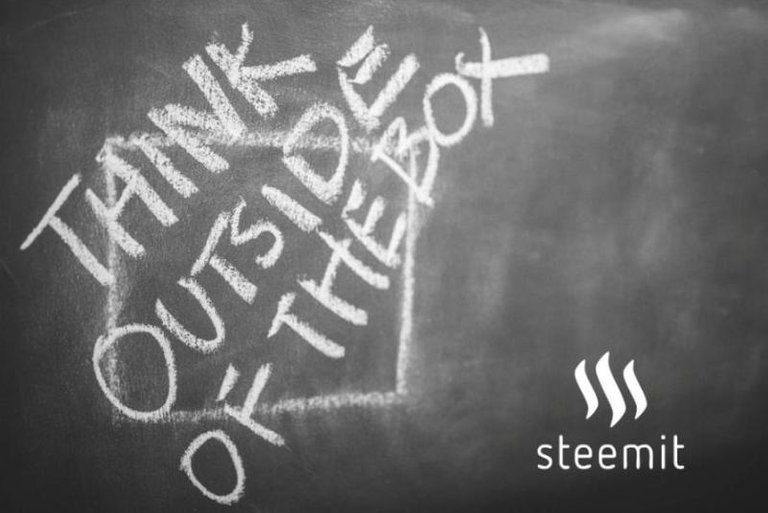We are happy to announce the successful launch of the first Steemit Book Club on Monday.
It was a great meeting with some insightful contributors, helpful discussions and some very interesting perspectives, which is exactly the purpose of a Book Club. It included a number of members who are new to Steemit, since I invited my mailing list to join.
Note that the Comments section of this post will also serve as a discussion forum for the current reading.
Before we recap the conversation, here are the details for next week’s call and reading assignment...

NEXT WEEK’S SBC CALL
Steemit Book Club, Session 2
Book: James Joyce, Ulysses (Gabler Edition)
Reading Assignment: To the end of the first chapter (page 19)
Date: Monday, September 19
Time: 6 p.m. PST / 9 p.m. EST / 2 a.m. GMT / 11 a.m. (Tuesday) UTC
Phone: (800) 719-6100 or (218) 339-7800, access code 629-1831#
Web audio link (and location for international call-in numbers):
https://hello.freeconference.com/conf/call/6291831
Chat: #steemit-book-club channel on steemit.chat
Don't forget to download this one-page map to “Ulysses,” which we mentioned on the call. It will be a huge help with the readings:

THIS WEEK’S RECAP
In case you missed the first meeting and want to join us for call number two, it's not too late. Here’s the recording of the entire first Steemit Book Club meeting:
https://soundcloud.com/user-655948001/the-first-steemit-book-club-meeting-1
(Not sure what you did to my voice, @the-alien, but I wish I always sounded like that.)
For those who don’t have time to listen or just want to review, here’s a quick recap of the call.
Among the things we discussed…
1. The history of Ulysses: Joyce was born in Dublin, and all his works take place there. They were written in the first half of the twentieth century while he was in self-imposed exile in continental Europe, and Ulysses was first published in 1922 although it is set entirely on one day: June 16, 1904.
2. Irish History: For those of you not up on your Irish history, what’s important to know about that time is that there was no independent country called Ireland. The entire island was part of the United Kingdom. And what’s also important to know is that all the big political decisions affecting the country were made from British Parliament in London. Thus, one of the big topics we’ll read about in the book is the Irish quest for Home Rule—for independence and self-government.
3. Catholicism. Most of Ireland was and remains Roman Catholic; however, since the 1500s, when Henry VIII broke off with the Roman Catholic Church, Anglicanism has been the dominant religion in Britain. So basically it is a Catholic reformed church that doesn’t recognize the supreme authority of the Pope over all other bishops. The point is that the schism in the book between English and Irish culture that will often come up is not just one of political rule but also religious difference.
4. Joyce’s other works: We discussed Dubliners and A Portrait of the Artist as a Young Man, specifically, since those characters are featured in Ulysses, particularly Stephen Dedalus, who is partially based on James Joyce’s younger self. What’s important to know is that Portrait chronicles, among other things, Stephen Dedalus’s schooling at a Jesuit boarding school, and his internal struggle between the spiritual, the aesthetic, and the concupiscent. Though he’s on a path to enter the priesthood, he eventually breaks from Catholicism and the end of Portrait finds him exiling himself from Dublin to free himself from the pressures of family, friends, religion, and Irish society to strike out on his own. We’ll be exploring this in more detail later, but when we begin Ulysses, Dedalus has returned to Ireland after living in Paris.
5. Ulysses: We discussed the stylistic leap from Portrait, which was a more traditional third-person novel though still breaking through the form into more modernist internal storytelling, to Ulysses, which is mostly stream-of-consciousness and varies wildly in its style. Often, in Ulysses, we’re experiencing an ongoing interior monologue taking place in a character’s head at the same time as the dialog and action he’s also experiencing. And this is what often makes Ulysses difficult for people to follow. When you are thinking thoughts in your head, you’re not stopping to explain references or context for anything, or making transitions between one topic and another. The other thing to remember as you read Ulysses is that it was seen as obscene and pornographic at the time, and so controversial that it was banned for over ten years in England until it could be released. In America, it was also declared obscene, and the first shipments of the book to the country were destroyed. It took twelve years later until a judge famously said that it may be an “emetic”—ie, something capable of making one vomit—but it definitely wasn’t an aphrodisiac.
6. The Odyssey: As most people know, Ulysses is modeled on Homer’s The Odyssey. The epic poem is about Odysseus (also known as Ulysses), the king of Ithaca and the trickster-hero behind the now famous Trojan Horse. It deals with his return home, which took another ten years on top of the ten-year Trojan War. During this epic journey, he had to battle, outwit, escape, and overcome all sorts of obstacles, which we’ll cover chapter by chapter as we meet them.
7. The Anti-Hero: One of Joyce’s points in this book is that you don’t have to sail the world and slay dragons to be a hero. Every day, we are sailing around our own small world and slaying our own dragons. So the everyday events of the three main characters of Ulysses in a day mirror the epic ten years of the main characters in the Odyssey: the king Odysseus returning home (Leopold Bloom), his wife Penelope being courted by obnoxious suitors (Molly Bloom), and his son Telemachus searching for him (Stephen Dedalus).
We then read the first three pages of the book out loud, analyzing it line by line and noting the Homeric parallels until it all made sense. You can hear that interpretation on the call. We agreed that we didn’t catch every reference and symbol hidden in the text, but at least it was all comprehensible and straightforward by the end of the call.

The good news for those who missed the first meeting is that we have only read the first few pages so far. Basically, you can be caught up in no time to join us for the next session.
We also have our first suggestions for the next book that we will read: War & Peace, Infinite Jest, and Hopscotch (with each member taking a different route through the book).
Let us know any thoughts on future books to read, on the first pages of Ulysses, and let’s continue our discussion below.
Best,
In. Chris J. - S100
Read to page 19 by the 19th! That should be easy enough to remember! :)
Didn't even realize that. Perfect. Hope you're on the call to do some symbolism-hunting.
Sure, was there for the first one but had my phone on mute when it asked for my name, lol
Great, we are going to take a proper roll call this Monday since there will be less people.
This is such a nice idea ! I will check it out ...
Thanks, @mammasitta. Will be great to have you on the call, with your knowledge of the world.
My pleasure Neil ! I am preparing for my next trip to Europe next week . The online " old school " life is calling me :) and for a while I might have to get used to reality of The Wild West again :)
I just finished the A Portrait of the Young Man as an Artist....holly smokes, man.... it made me fear there was a god for a while...are you weary of your ardent ways..... this is better than college. Page 19.... cool. Can't wait to listen to the recording. :) Cheers for up loading!... hopefully get on board the next call.
The first call was fantastic and I actually had dreams some Joycean dreams Monday night. Loving the book so far! I surprised myself by getting through the rest of the chapter in one sitting last night and feeling like I understood the vast majority of it, even if the sparknotes page I checked out afterwords actually gave me a little more idea what went down in the last few pages. So happy to be back in the folds of literary greatness thanks to Neil & The Alien!
Here's the sparknotes summary if anyone is like me and wants a little more background and clarity once you get though: http://m.sparknotes.com/lit/ulysses/section1.rhtml
Haha it wasn't me, I sent the recording to a friend of mine who works in film. I have no idea what he did to it, but I'm glad you like it.
It was great first meeting, and I hope more steemians will join us next week :)
While reading this post, my heart began to beat a little faster once I realized this might actually be a great book. Not some dull, million page snooze fest of over intellectualized, puffed up, blah, blah, blah.
Oh no, quite the contrary.
Ulysses sounds like it has depth and meaning. Even better! hidden meaning l-a-y-e-r-e-d throughout. Where we're miners searching for gold nuggets of thought. And when we discover them, we'll chew on them like chicken wings (sorry not sorry, vegans) gnawing on the ends until we're satisfied and move on to the next delicious piece. I think I may have been beamed up to nerd girl heaven. Yay!
I'm listening to an audiobook. Try it. We all take in information differently. For some, audiobooks help us process and retain information more effectively. For me an audiobook generates a fluid full feature movie in my mind without the distraction of following text like reading a book does.
For some odd reason I always get James Joyce mixed up with Julian Jaynes
Thank you for the recap and the map. This is my first time reading Ulysses and it has been very helpful to get input from different sources to help comprehend the book. I also did some reading on SparkNotes to get some more information to help anchor my mind to the story - it made things much more clear. I'll miss at least the first two meetings due to work and family, but I'll be keeping up with the posts and recaps. Cheers.
Really enjoyed the call last week looking forward to the next call. The Soundcloud audio is slowed down in pitch quite a bit. Neil sounds like a different person LOL
Love the idea of this book club, timing is not really good for me to join the calls but I'll keep an eye on the session summaries. I think I'll still get the book and see if I can follow along :)
Access code is coming up as invalid
Hi all
I couldn't find a post for the second call which would have been on Monday. Did it take place? I would like to hear it. I'll try and get on a future call, but it's at 2am here in the UK on a work night, so tricky! This forum might be the only place I can contribute.
Thought I would share my experiences so far with the book. I listened to the first call which was good for a general understanding and context. I didnt have the book at the time of listening, so it was a bit hard to follow it without seeing it written down. Once I bought the book (not exactly the Gabler edition but uses the same line numbering system as Gabler) I read the first chapter.... and really struggled with it!
Then I read two sets of notes online, first the SparkNotes that people have referred to, but also the Cliff notes which are more detailed and focus on different elements (https://www.cliffsnotes.com/literature/u/ulysses/summary-and-analysis/chapter-1). Then I went back and re-read the chapter, really slowly! And this time I understood it quite well.
My personal thoughts on it... I find it amazing how much he fits into one chapter, it's so dense! When you start to really unpick every sentence, there is a lot going on. And on top of that, there is zero exposition. He knows it will be read and re-read, so he doesn't really care about your first impression, it's the the third reading he cares about, which is why it's so hard to digest I think. I find it similar to a new Radiohead album, it only starts to make sense after about the fourth listen.
Not having listened to the call I dont know what the second reading is, but I read the second chapter anyway, and I found this much easier to read and digest on first reading. I think once you've accustomed yourself to his style of writing, it's easier. For example, I didn't find it hard to differentiate between Stephen's internal monologues and his conversations with other people in chapter 2, which I struggled with in chapter 1.
So I cant wait to hear the call and see people's thoughts on it. Will be interesting.
Thanks